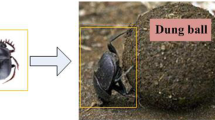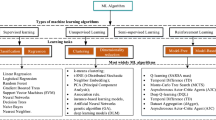Abstract
Selective assembly is a quality improvement strategy that can be used to obtain higher-quality product assemblies by using relatively low-quality components. Past selective assembly research has often focused on quality characteristics (QCs) that have linear relations. However, there are many nonlinear QCs relations in mechanical products. For this situation, a QCs relations model based on the Bayesian network is introduced. The product quality can be predicted at an early stage based on the Bayesian network. To analyze the relations between the QCs, the QCs were categorized into three types: initial quality characteristic (IQC), target quality characteristic (TQC), and middle quality characteristic. The different IQCs can lead to different product qualities. When many products are manufactured in a batch, the product quality can be improved by the selective assembly. It means to optimize the IQC combinations. A quality improvement model based on genetic algorithm is proposed to optimize the IQC combinations. A translation mechanism is used to demonstrate the effectiveness of the proposed method. Results show that the proposed model is well suited for the quality improvement of mechanical products.


















Similar content being viewed by others
Data availability
All the data and materials in this study are available upon reasonable request.
References
Aderiani AR, Warmefjord K, Soderberg R (2018) A multistage approach to the selective assembly of components without dimensional distribution assumptions. J Manuf Sci Eng Trans ASME 140:071015. https://doi.org/10.1115/1.4039767
Xu H, Kuo S, Tsai JWH, Ying JF, Lee GKK (2014) A selective assembly strategy to improve the components’ utilization rate with an application to hard disk drives. Int J Adv Manuf Technol 75:247–255. https://doi.org/10.1007/s00170-014-6106-y
Liu L, Zhu F, Chen J, Ma Y, Tu Y (2013) A quality control method for complex product selective assembly processes. Int J Prod Res 51:5437–5449. https://doi.org/10.1080/00207543.2013.776187
Raj MV, Sankar SS, Ponnambalam SG (2011) Optimization of assembly tolerance variation and manufacturing system efficiency by using genetic algorithm in batch selective assembly. Int J Adv Manuf Technol 55:1193–1208
Tang X, Wang M, Wang S (2007) A systematic methodology for quality control in the product development process. Int J Prod Res 45:1561–1576
Duan G, Wang Y (2013) QCs-linkage model based quality characteristic variation propagation analysis and control in product development. Int J Prod Res 51:6573–6593. https://doi.org/10.1080/00207543.2013.802392
Yang F, Duan G (2012) Developing a parameter linkage-based method for searching change propagation paths. Res Eng Des 23:353–372. https://doi.org/10.1007/s00163-011-0124-7
Jun H, Kim D (2017) A Bayesian network-based approach for fault analysis. Expert Syst Appl 81:332–348. https://doi.org/10.1016/j.eswa.2017.03.056
Lessan J, Fu L, Wen C (2019) A hybrid Bayesian network model for predicting delays in train operations. Comput Ind Eng 127:1214–1222. https://doi.org/10.1016/j.cie.2018.03.017
Lyu X, Ding Y, Yang S (2020) Bayesian network based C2P risk assessment for cyber-physical systems. IEEE Acc 8:88506–88517. https://doi.org/10.1109/ACCESS.2020.2993614
Jin S, Liu Y, Lin Z (2012) A Bayesian network approach for fixture fault diagnosis in launch of the assembly process. Int J Prod Res 50:6655–6666. https://doi.org/10.1080/00207543.2011.611543
Yang L, Lee J (2012) Bayesian belief network-based approach for diagnostics and prognostics of semiconductor manufacturing systems. Robot Comput Integr Manuf 28:66–74. https://doi.org/10.1016/j.rcim.2011.06.007
Li S, Wu Y, Xu Y, Hu J, Hu J (2018) A Bayesian network based adaptability design of product structures for function evolution. Appl Sci 8:493. https://doi.org/10.3390/app8040493
Li X, Xing K, Wu Y, Wang X, Luo J (2017) Total energy consumption optimization via genetic algorithm in flexible manufacturing systems. Comput Ind Eng 104:188–200. https://doi.org/10.1016/j.cie.2016.12.008
Shiyas CR, Madhusudanan PV (2014) Cellular manufacturing system design using grouping efficacy-based genetic algorithm. Int J Prod Res 52:3504–3517. https://doi.org/10.1080/00207543.2013.871390
E. B, O. E. (2018) Mechanical design optimization of a 6DOF serial manipulator using genetic algorithm. IEEE Acc 6:59087–59095. https://doi.org/10.1109/ACCESS.2018.2875272
Victor Raj M, Saravana Sankar S, Ponnambalam SG (2011) Genetic algorithm to optimize manufacturing system efficiency in batch selective assembly. Int J Adv Manuf Technol 57:795–810. https://doi.org/10.1007/s00170-011-3326-2
Kumar MS, Kannan S (2007) Optimum manufacturing tolerance to selective assembly technique for different assembly specifications by using genetic algorithm. Int J Adv Manuf Technol 32:591–598
KUMAR MS, KANNAN S, JAYABALAN V (2007) A new algorithm for minimizing surplus parts in selective assembly by using genetic algorithm. Int J Prod Res 45:4793–4822
Shide S, Xuezhong X (2009) Mechanism and machine theory. China machine press, Beijing
Wang Y, Blache R, Zheng P, Xu X (2018) A knowledge management system to support design for additive manufacturing using Bayesian networks. J Mech Des 140:051701. https://doi.org/10.1115/1.4039201
Wendong S, Fumin C, Faming Q, Rui Z, Chunlei L (2018) Abnormality diagnosis method for manufacturing process based on Bayesian network. J Xi'an Jiaotong Univ 52:9–14
Li B, Han T, Kang F (2013) Fault diagnosis expert system of semiconductor manufacturing equipment using a Bayesian network. Int J Comput Integr Manuf 26:1161–1171. https://doi.org/10.1080/0951192X.2013.812803
Cooper GF, Herskovits E (1992) A Bayesian method for the induction of probabilistic networks from data. Mach Learn 9:309–347. https://doi.org/10.1023/A:1022649401552
Liu Y, Jin S (2013) Application of Bayesian networks for diagnostics in the assembly process by considering small measurement data sets. Int J Adv Manuf Technol 65:1229–1237. https://doi.org/10.1007/s00170-012-4252-7
Liu T, Liu R, Duan G (2020) A principle-empirical model based on Bayesian network for quality improvement in mechanical products development. Comput Ind Eng 149:106807. https://doi.org/10.1016/j.cie.2020.106807
Funding
This work was supported by the (i) project of Intelligent Manufacturing New Schema, (ii) National Project of High-end CNC machine, (iii) National High Technology Research and Development Program of China (863 Program) (No 2015AA042101), and (iv) Joint project for graduate students of Beijing higher education institutions (No. BJ2017-BH003).
Author information
Authors and Affiliations
Contributions
Taotao Liu: conceptualization, methodology, original draft preparation, review, and editing. Guijiang Duan: methodology, project administration, review, and editing.
Corresponding author
Ethics declarations
Ethics approval and consent to participate
Not applicable.
Consent for publication
The authors consent to the publication of this paper.
Competing interests
The authors declare no competing interests.
Additional information
Publisher’s note
Springer Nature remains neutral with regard to jurisdictional claims in published maps and institutional affiliations.
Rights and permissions
About this article
Cite this article
Liu, T., Duan, G. A selective assembly strategy to improve mechanical product quality based on Bayesian network and genetic algorithm. Int J Adv Manuf Technol 116, 3619–3634 (2021). https://doi.org/10.1007/s00170-021-07720-0
Received:
Accepted:
Published:
Issue Date:
DOI: https://doi.org/10.1007/s00170-021-07720-0




